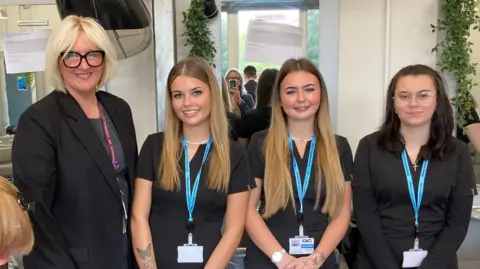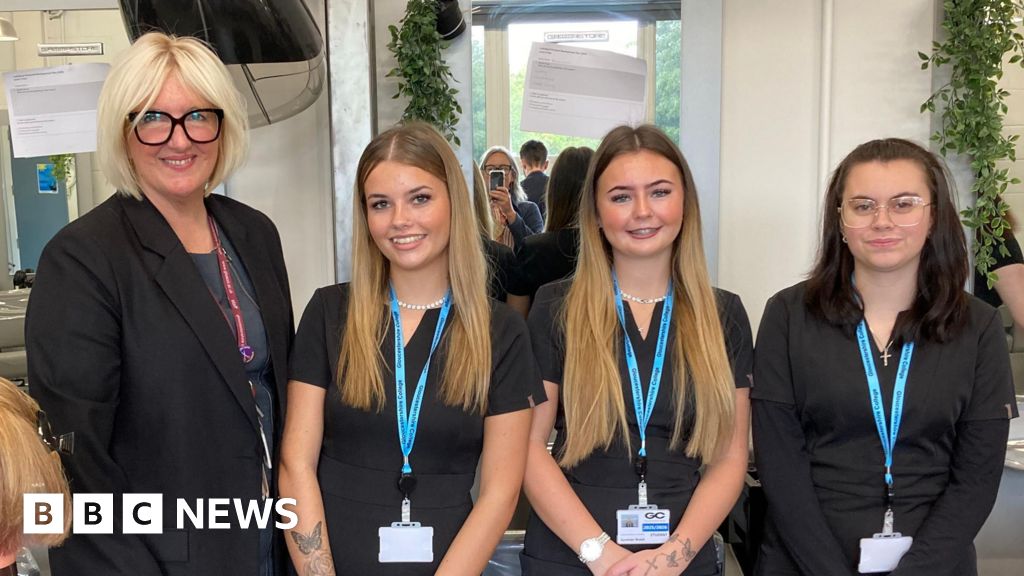Chloe HarcombeWest of England and
Kate ClarkBBC Radio Gloucestershire
 BBC
BBC
Fiona O’Connor teaches Carmen, Summer and Daisy on the Level Three Hairdressing course at Gloucestershire College
A college hairdressing lecturer says changes to the industry have made securing permanent jobs “the hardest thing” for aspiring stylists.
Fiona O’Connor, who teaches at Gloucestershire College in Cheltenham, said the rise of self-employment was one of the factors behind the changes.
Earlier this year, the British Hair Consortium (BHC), which represents 50,000 hairdressing professionals, said the changes could see hairdressing apprenticeships disappear by 2027.
Hairdressing student, Daisy, said she is struggling to find a weekend job due to the lack of salons hiring staff. “If it’s so hard already to get a placement, how much worse is it going to be in the future?” she said.
The BHC raised concerns about the state of the industry following the publication of its survey with CBI Economics in February.
It said hairdressing is more labour-intensive than other businesses, with limited chances to reclaim VAT costs.
To keep costs low, the BHC said an increasing number of salons are opting to rent chairs to self-employed stylists to avoid paying tax.
The report also predicted that direct employment could “plummet” by 93% by 2030.
‘Support important’
Carmen, Summer and Daisy, who are taught Level Three Hairdressing by Ms O’Connor, said they all hope to become successful stylists.
Carmen and Summer have managed to secure weekend jobs in a salon and said it has allowed them to build confidence and learn new things.
“You learn how to talk to clients better,” Summer said.
“At first, I used to be so scared, but now it’s like it just comes naturally.”
However, Carmen said that apprenticeships were not offered where she worked due to a lack of government funding for them.
“It’s harder because where [hairdressers] already have to do their job, they’ve also got to teach you as well,” she said.
When asked how hard it was for stylists to get permanent jobs, Ms O’Connor said: “It’s the hardest thing. It’s important, I think, when learners finish their education that they do still get the support of a salon.
“Even if you are self-employed, you’re still going to have that support because you’ve got people around you who are working. You can ask them, and you can still act as a team.”
Ms O’Connor said her students were given guidance around both salon employment and self-employment to help them prepare for their future careers.


